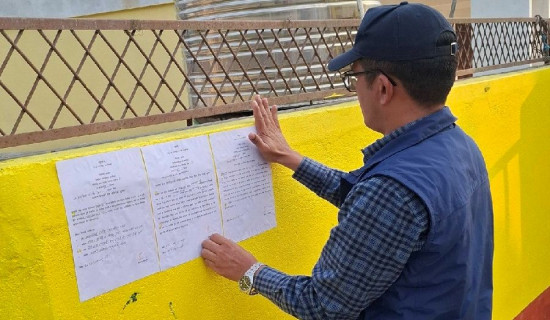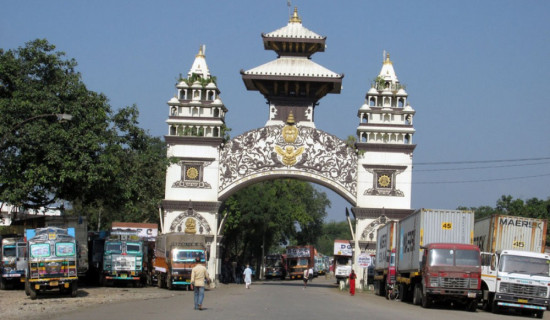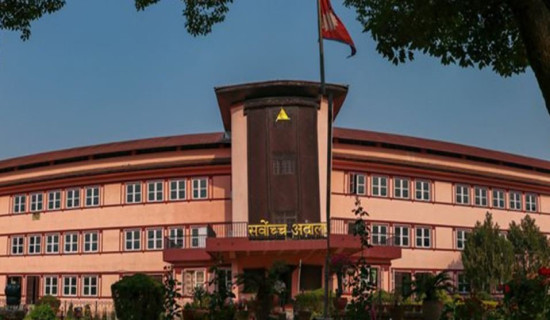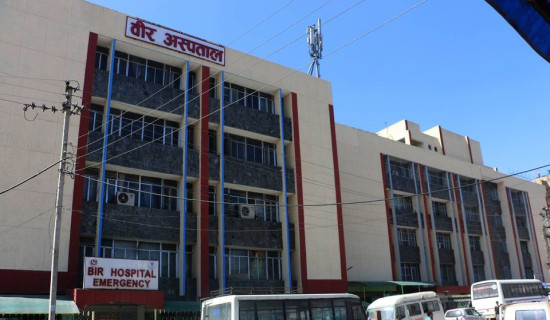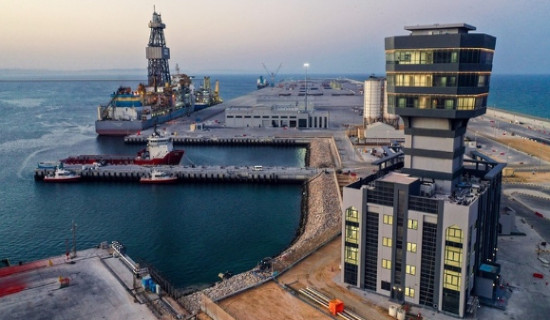- Tuesday, 3 March 2026
Coalition Seat-sharing Onus On NC, Maoist Centre
After the government’s announcement of the election date, all political parties started strengthening organisational capacity at the local, village, municipality, district and central levels to improve their chances of winning the elections. These parties will soon hold rounds of 'training and orientation' programmes for party workers and cadres to get them ready for electioneering as the November 20 (Mangsir 4) election date approaches.
Five parties that make up the current ruling coalition – the Nepali Congress, CPN-Maoist Centre, Janata Samajbadi Party, CPN-Unified Socialist and Rastriya Janamorcha - decided to maintain the electoral coalition, first formed during the May local elections. The decision saw the beginning of the parliamentary seat allocation process among the coalition partners.
With this decision, the ruling alliance’s left parties have 'abandoned' their efforts to set up a socialist centre. Similar to this, rumours that the Maoist Centre and Unified Socialist Party would form an alliance with the UML have also vanished since two influential members of the alliance, Maoist Centre chair Pushpa Kamal Dahal Prachanda, and Unified Socialist chair Madhav Kumar Nepal, both denied having any sort of alliance with their rival, the UML.
Acceptable seat-sharing
Before choosing the names of election candidates and starting their campaigning, efforts are being made to find a seat-sharing solution that will be accepted by all parties. As the largest of the five coalition partners, the NC has the responsibility of allocating seats amicably for the issue of seat sharing for both elections can make or mar the coalition's fabric. Given the current makeup of the House of Representatives, the NC wants more seats than other parties while the Maoist chair too craves to be on an even playing field with the NC in terms of parliamentary representation.
Having assumed coalition leadership in the government, the NC must instil confidence in coalition members regarding seat allocations and must not permit any misunderstanding to crop up among the parties in power. Of 165 parliamentary seats up for grabs, the NC, the largest party in the coalition, wants to keep about 85 seats, leaving about 80 to other coalition partners. However, the Maoist Centre, Unified Socialist, and the other two partners requested to have more than 85 seats, which makes the seat allocation task a tricky one at present. Due primarily to the Maoist chair’s desire to succeed PM Deuba as prime minister if the alliance wins the election, the seat distribution debate may take an unfavourable turn.
In the meantime, the question of who should serve as the NC’s next prime minister has emerged. The intra-party contest for the position of prime minister features youth leaders Gagan Thapa, Shekhar Koirala, Prakash Man Singh, Shashank Koirala, Bimalendra Nidhi, and Ram Chandra Paudel. Besides, the selection of candidates appears another uphill task for the Congress. Rumours are rife that many parliamentary ticket hopefuls, especially in the Terai districts, may defect the party if they fail to get their candidacy endorsed.
Due to a projection that the five-party coalition will garner enough seats in the federal and provincial legislatures, many candidates for prime minister entered the race. Voter preference for the coalition parties is currently high, as evidenced by the vote ratio. However, the Kathmandu grapevine is abuzz that PM Deuba and Prachanda will serve as prime ministers for the next five years on a rotating basis after the five-party coalition wins the election. Such circulating talks in the capital city will make the election’s aftermath to be interesting.
Although many NC members were in favour of a majority Congress administration at the national level, it is not likely to win a landslide, given the current electoral framework. According to experts, it is extremely challenging for any party to win a majority in the House of Representatives because candidates are elected using the first-past-the-post and proportional representation electoral systems. Therefore, in order for the NC to secure the premier’s office for its party leader, the coalition partners will need to support the NC. The same is true for coalition members and leaders.
The UML will suffer the most because it must run in the elections alone, unlike in 2017, when the Maoist Centre teamed up with the main opposition. Despite having a strong organisational structure, the party is probably going to experience a negative poll result. There is a rationale behind this. The erstwhile Nepal Communist Party (NCP) split up because of disagreements between KP Sharma Oli, Prachanda and Nepal, which has made UML less competitive in the coming elections. Following Oli's dissolution of the HoR that was reinstated later by the Supreme Court, opponents accused him of undermining the federal constitution. Because of Oli’s unconstitutional actions, the Maoist chair and the then-UML leaders plotted to have him removed from office.
In the 2017 election, the UML surged to become the single largest party in the then HoR, thanks to votes it garnered from Maoist supporters. However, Oli could not hold on to the near two-thirds of NCP majority for the entirety of his term as the Prime Minister because of his blundering that helped the five-party coalition form its current administration, led by the NC, leaving the UML to lick the wound that its chair gave it.
Predictions
Many UML leaders and backers know that the five-party alliance will win the upcoming election because the combined power of the alliance’s members will make them unstoppable. Some predictions, however, offer comforts for the UML because they suggest the party may still surpass the Maoists and Unified Socialists to become the second-largest party in the House.
Having said all that, the arduous task of parliamentary seat sharing will determine the coalition’s fate in elections. The distribution of seats should take place in such a way that coalition members experience a sense of unity and belonging, which will motivate them toward keeping the coalition intact for another five years. While allocating parliamentary seats to smaller parties in the alliance, the two key players, the Nepali Congress and the Maoist Centre, must remain cautious not to undermine the aspirations of the alliance’s smaller parties. In short, the seat allocation must aim at enabling coalition candidates to win enough seats to put them remain ahead in federal and provincial legislatures.
(Upadhyay is Managing Editor of this daily)









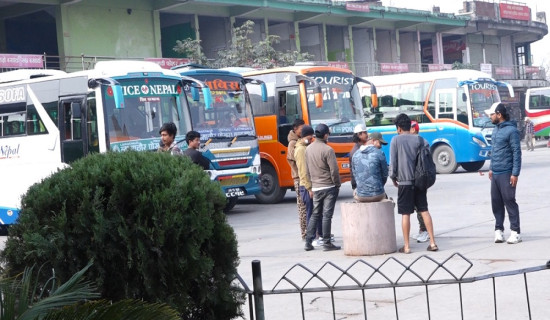
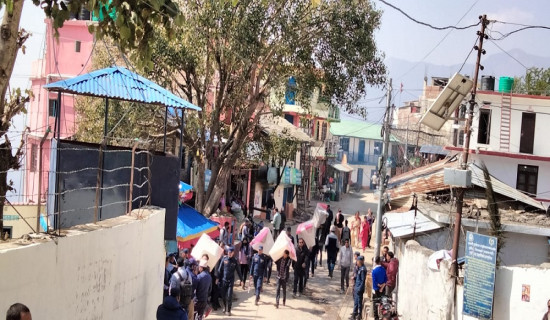
-original-thumb.jpg)
